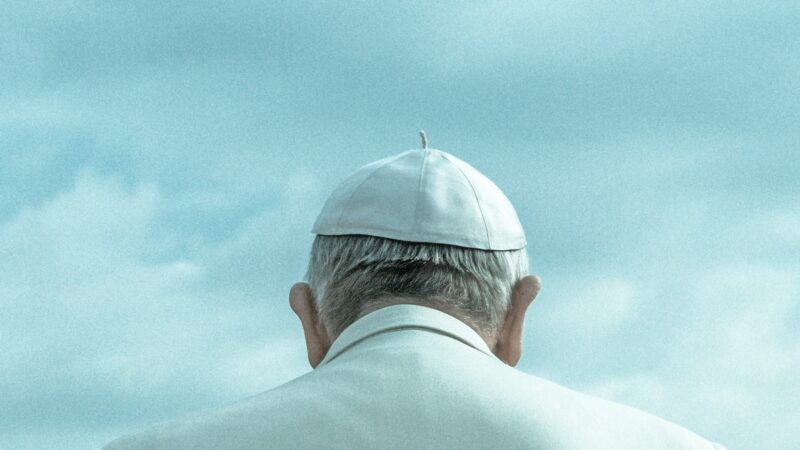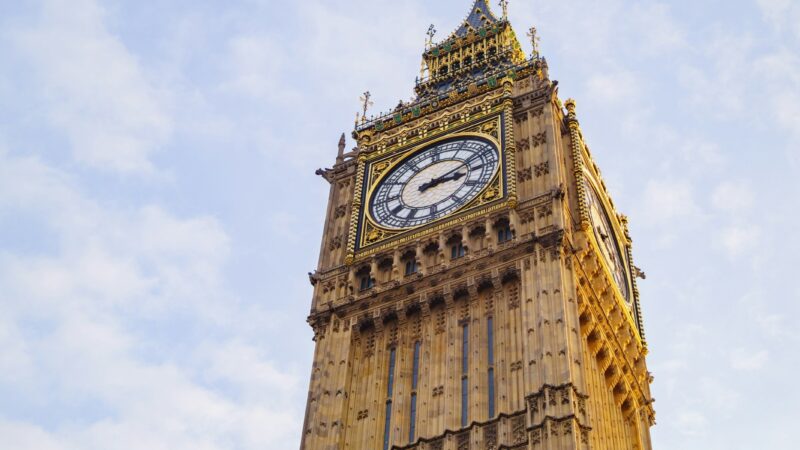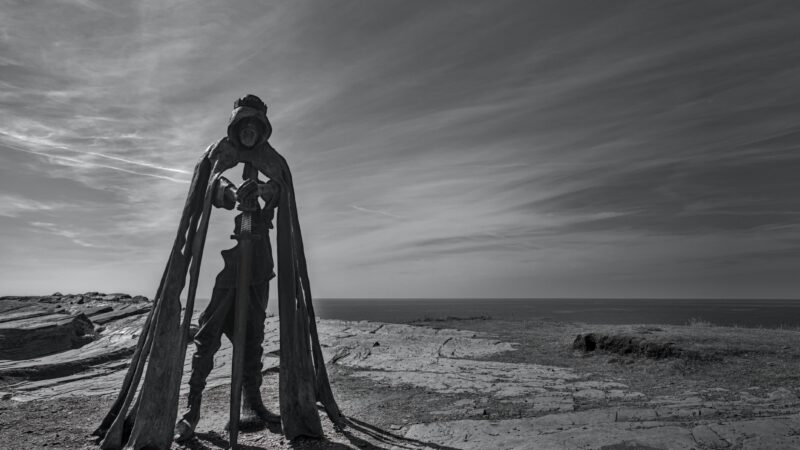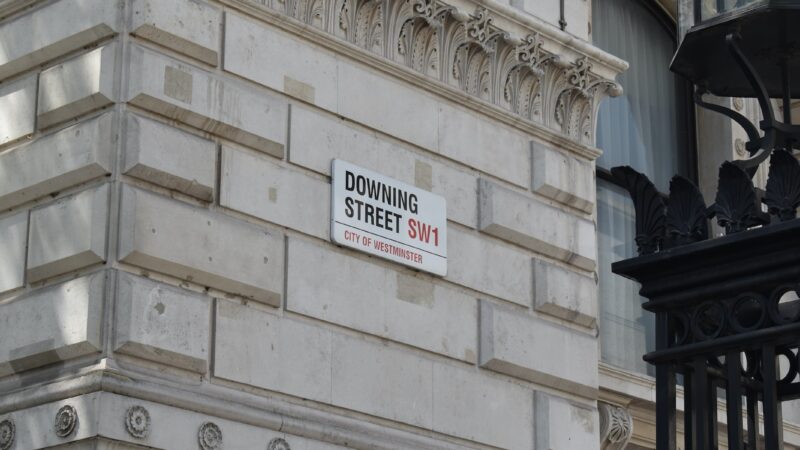Is The Pope Catholic?
Growing up, there was a saying my friends and I were fond of. Whether we were loitering outside a shop or putting our feet on the furniture, if we were challenged on our behaviour, our go-to response would always be ‘it’s a free country’. It didn’t always fly, mind you, but the utterance was common when I was young.
For obvious reasons, you never hear that one anymore. True, the country wasn’t really free then either, but we were not so heavily regulated and wrapped in a straight jacket of stifling laws as we are now. We could employ a bit of denial back then. An impossible comfort today.
We aren’t free. We know it every time we see a prohibiting sign, or try to express an innocent opinion now condemned, or utter one of those forbidden truths in the office which might see us brought before HR. We know it when the Tories let in hundreds of thousands of foreigners after pledging to cut immigration. We know it when the bank accounts we never wanted are plundered to pay for migrant accommodation, wars we don’t understand, and aid to countries with space programs. We know it when we see Christians arrested for praying silently by abortion clinics, or when local governments allow one protest, but not another, during state enforced lockdowns. We aren’t free, and so the old adage had to be retired.
Another popular saying goes, ‘is the Pope Catholic?’, which is used whenever the answer to a question is an unequivocal ‘yes’. You might think that this one is safe, but with the latest news coming out of the Vatican it looks as though we might need to axe that one too, as it has been revealed that Pope Francis has said his priests can now bless same sex relationships. Not the individuals in that relationship, but the same sex couple itself.
Now, I’m not a homophobe (though I’ve been called one), and neither am I a Catholic, but when I heard this news I couldn’t help but wince. I’m not saying homosexuals don’t have their place in the world, they do, though I’m not entirely sure that place is in the Catholic Church. I mean, the Bible is pretty clear on homosexuality, and it doesn’t exactly give a glowing review of the ‘lifestyle’. Like it or not, that’s how it is, and no man is supposed to be able to change that within the Church. Yet the Pope has done just that, seemingly ignoring the very religion of which he is a fairly significant part.
Some less pessimistic souls might say that the Pope is trying to save the Church by moving with the times. If that is the case, he has failed. Cultures, religions, and nations cannot pursue policies of inclusion. They must, if they are to survive, remain exclusive, with a set of rules or criteria which must be met to be counted among their number. I mean, look at what happened to Britain after it pursued the American style of inclusion and decided that being British took nothing more than the right paperwork. It didn’t take long before we weren’t even sure what Britain was anymore. The same will happen to the Catholic Church.
For my part I am not willing to give the Pope the benefit of the doubt on this one. I do not presume him to be a stupid man and therefore must suppose that he knew by trying to move the Church with the times in this manner, he was in turn rendering the Church redundant. I say this because, if the church is simply to bend to modern sensibilities, against the word of God or not, I can see no point in its existence. What’s next, acceptance of abortion?
Perhaps you feel I’m being hysterical, but remember, when gay marriage was passed in this country, it was done under the unofficial but regularly touted slogan of ‘what two consenting adults do in the comfort of their own home should be no one’s business’. We accepted that, and now we have drag queens reading stories to children and surgically altered men with breasts stripping naked on live television. The decline moves fast, and it appears that the Pope has just opened the door to it in the Catholic Church.
If this is not rejected wholesale by those under the Pope, then it is only a matter of time before we see videos of transvestite priests baptising non-binary infants while the two ‘fathers’ watch proudly. And thus, the Catholic Church will be no more. Perhaps that’s the future you want, but somehow I don’t think it’s the future Catholics want.
What we are seeing is another column of the world we knew falling to globohomo, a force which seeks to drape the world in a pall of moral relativism, and which seeks to destroy all spirituality and replace it with consumerism and fabricated, shallow identity. I have my feelings about that, but I’m not offering them here. I’m simply making a prediction. What I will say is this – the next time you ask someone a question and they respond ‘is the Pope Catholic?’, take that as a ‘no’.










Open Borders Rely on Political Irrationality
All too often, open-border policy stems from the fact that politics is determined by a class of people with deep-seated illusions about the facts surrounding immigration. Sweden is an ideal example of this pattern. Of all the countries in Europe, Sweden is especially notorious for having welcomed large numbers of refugees it could not properly integrate. In 2015, notes columnist James Traub, the country absorbed 163,000 of them. It has not gone well. Skyrocketing crime rates, mass unemployment among immigrants, and heavy strain on the welfare state have made Swedes weary of incoming foreigners. As a result, writes Traub, even Sweden’s Social Democrats have embraced ‘harsh language’ which used to be monopolised by ‘far-right nativists.’
This year’s November issue of the academic journal Kyklos includes the article Misrepresentation and migration, which explores the causes of that initial Swedish openness to migrants. Authors Anders Kärnä and Patrik Öhberg note that the extreme permissiveness with which migrants were let into the country ran radically counter to the will of the Swedish electorate. Voters’ dissatisfaction brought a right-wing government to power in 2022 and fueled the rise of the hard-right Sweden Democrats. Backlash was so strong that in 2015 the country’s prime minister was forced to make a U-turn and advocate for tougher restrictions after pushing for open borders earlier that year.
So why did the political class initially defy popular opinion to welcome hundreds of thousands of foreigners? Kärnä and Öhberg argue that Swedish politicians held far different views on the subject than their constituents. Polling coducted over the years shows that in every major party other than the Sweden Democrats, politicians were significantly less likely than their constituents to favour accepting fewer refugees until 2018. The authors conclude that pushback from the voting public, including through the emergence of the Sweden Democrats as a political competitor, eventually drove elected officials in other parties to revise their positions. Nevertheless, politicians from two of the three left-wing parties continued to be somewhat more pro-refugee than their constituents in 2018, the last year for which numbers are provided.
Contrary to what one might assume, the disagreement between politicians and voters did not occur because the politicians were better informed than the common people. On the contrary, they were deeply mistaken about the effects of their policies. The authors cite survey data from 2015 and 2017, showing that most Swedish politicians thought the economic impact of accepting refugees was ‘positive in the long run.’ However, they demonstrate that this belief is contradicted by all available peer-reviewed journal articles and by all the expert analyses of the issue which have appeared in official reports by the Swedish government. The existing studies indicated, and still indicate, that refugees are harmful rather than beneficial to Swedish economic performance. In other words, the idea that refugees were good for the economy was a piety which the political class held against all evidence.
Sweden’s experience is not unique. The immigration debate in the United States has also been marked by false ideas which politicians continue to hold despite overwhelming evidence against them. As Steven Camarota of the Center for Immigration Studies has observed, the notion that immigration can remedy ‘the aging of American society’ continues to be unquestioningly advanced by advocates of open borders even though it is blatantly inconsistent with the facts. The increasing average age of immigrants, their decreasing fertility rates, and the sheer size of the influx which would be required to offset American demographic woes make such a project impracticable.
Kärnä and Öhberg’s paper considers the irrationality of unfettered immigration only from an economic standpoint, but it is harmful in other ways as well. In addition to economic consequences, accepting countless immigrants whose values are incompatible with those of the host society creates sociopolitical problems with no obvious solution.
One such issue is organised crime. The Financial Times reports that, relative to population size, Sweden suffers from the third-highest rate of gun deaths of any EU country. A major cause of this epidemic is ‘[w]ell-established criminal gangs’ which are ‘largely run by second-generation immigrants.’ Sweden’s prime minister has identified ‘irresponsible immigration policy and failed integration’ as the root of the epidemic. Meanwhile, as France 24 details, the Swedish government is currently considering options which would let it deport ‘asylum-seekers and immigrants for substance abuse, association with criminal groups or statements threatening Swedish values.’
The political repercussions of large-scale immigration are also severe, and the presence of people who do not share Western values presents a serious threat. For instance, Sweden’s left-wing parties have dithered in their condemnation of Hamas’s terrorist attack against Israel. ‘If you assume,’ explains journalist Richard Orange, ‘that the 200,000, or perhaps even as many as 250,000, Arabic speakers [in Sweden] are broadly pro-Palestinian, that’s an important voter base.’
Dominik Tarczyński, a Member of the European Parliament from Poland, eloquently addressed the sociopolitical implications of immigration in a September speech. He pointed out that despite receiving no large-scale immigration, Poland was prospering economically, and said the Polish people did not want more migrants. ‘You know why? Because there are zero terrorist attacks in Poland,’ he explained, citing EU statistics.
Europol’s data on terrorism do indeed bear out Tarczyński’s claim. The agency’s Terrorism Situation and Trend Report for 2023 provides a map of the EU showing how many terrorist attacks and ‘arrests on suspicion of terrorism’ each country experienced in 2022. Poland was among the handful of states where none of either occurred. France was arguably the country most affected, with six attacks and 109 arrests, though Italy suffered twelve attacks and carried out 45 arrests. Notably, jihadist terrorism prompted far more arrests than any other kind of terrorism from 2020 to 2022, although leftist and anarchist terrorism accounted for a few more attacks – 44 versus 30. Sweden experienced an attack during this period. Poland did not.
The migrants’ cultural background is the key issue, more so than immigration itself. On another occasion, Tarczyński told leftist televison host Cathy Newman: ‘We took over two million Ukrainians, who are working, who are peaceful in Poland. We will not receive even one Muslim.’ This, he emphasized, was the will of the Polish electorate. If Tarczyński is representative – and he is – then Poland’s immigration policy is based on a realistic understanding of the effects of mass migration as well as on respect for the will of the people. As Kärnä and Öhberg show, both of these considerations failed to inform Swedish immigration policy for most of the 2000s and 2010s, and it is dubious whether they have enough of an impact even today.
Tarczyński’s motto is ‘Be like Poland.’ Swedish politicians should take that advice to heart. To judge by experience, however, it will fall to Sweden’s voters to make them do so.
Photo Credit.